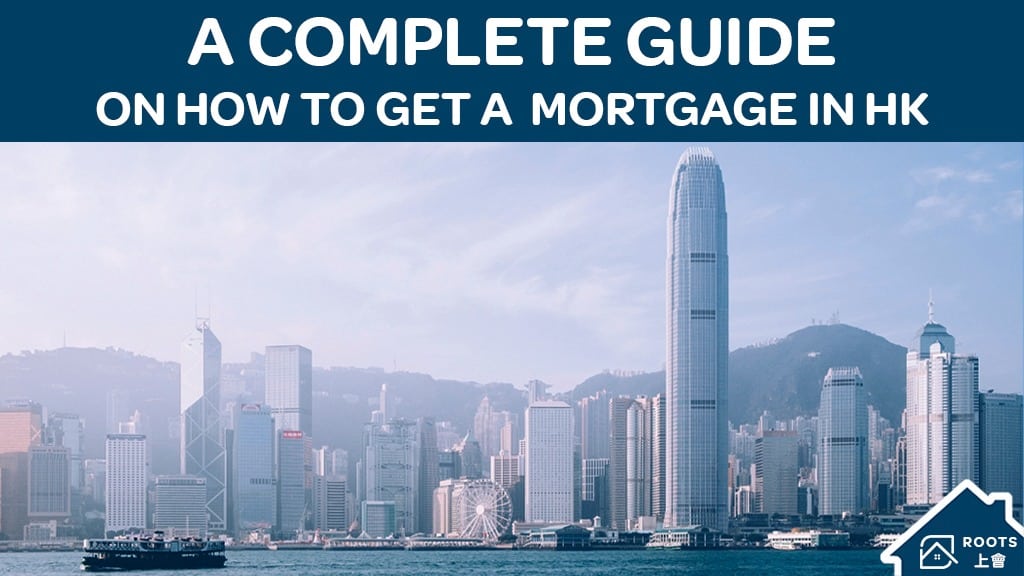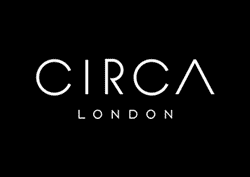Whether you are a local or expat, as long as you plan to stay in Hong Kong in the near future, buying a property is very likely to be a thing on your “to do list”. However, as we all know, Hong Kong has one of the most expensive property market in the world. Therefore, getting a mortgage for your home purchase is inevitable. Getting a mortgage in Hong Kong is not an easy task either. There are many regulations and guidelines home buyers must understand and follow, but don’t worry ROOTS will cover everything you need to know about how to get a mortgage in Hong Kong.
Before we continue on the topic, we want to let you know that ROOTS is the first online mortgage broker and startup focusing on mortgage in Hong Kong. ROOTS’ core services include an “online mortgage application form” and “mortgage pre-assessment report”.
The online mortgage application form is an all-inclusive application form which allows you to directly apply bank mortgages at home. The online form will save you time from going to the bank and filling out paper forms.
The mortgage pre-assessment report, is an A.I. algorithm backed feature that can assess your mortgage affordability and application success rate. By using the pre-assessment report, home buyers can understand how much they can loan based on their current financial situation. Therefore, it can avoid the risk of losing the deposit you paid because you were unable to obtain a mortgage loan from a bank.
Last but not least, BOTH of the services are FREE for anyone to use and feel free to contact us should you have any questions. Click here to WhatsApp ROOTS!
What is property mortgage loan?
A property mortgage loan is an agreement between the homebuyer and the lender, usually a bank, where the lender agrees to loan the borrower a fixed amount of money to finance a property transaction and the borrower agrees to repay the lender at an interest rate over a fixed period of time using the property as a collateral. If the borrower fails to repay the monthly payment/interest, the mortgage loan agreement will give the lender the right to take possession of the property.
Step by step guide on the home purchasing process and when to apply for a mortgage
- Complete the mortgage pre-assessment report to understand your affordability and calculate your home purchase budget
- Start looking for your dream home through a property agent
- Conduct a verbal valuation on the property you identified through ROOTS
- Sign preliminary sales and purchase agreement and place your deposit
- Complete our online mortgage application form
- Wait for your mortgage to get approved and complete the transaction through a reliable solicitor
The home purchasing journey in Hong Kong is more or less the same as most other parts of the world, but there are a few things you have to be mindful about. Firstly, banks in Hong Kong do not allow you to apply for a mortgage before signing the preliminary sales and purchase agreement. Meaning you have to first pay a deposit before knowing whether you can secure a mortgage loan from the bank. The risk here is that you might have to forfeit your deposit if your mortgage doesn’t get approved. Not to worry, we are well aware of the situation and that is why we developed the pre-assessment report to help you assess your situation before you place your deposit. In the end, our service can help minimize the risk of forfeiting your deposit because the bank won’t grant you a mortgage.
Secondly, it is important for any home buyers to conduct property valuation from various banks before signing the sales and purchase agreement. Knowing the valuation not only prevents you from getting ripped off by the seller, but also help secures your mortgage application. Banks in Hong Kong rarely grants a loan for a property transacted at 10% above or below market value.
What is Loan-to-value Ratio (LTV) and how much property mortgage loan can you get?
How much mortgage property mortgage loan can you get largely depends on your property price and your financial status/income. While the mechanics behind the calculation can be quite complicated, the easiest way to the answer is the first understand how much you can loan based on your property price, that is also called the loan-to-value (LTV) ratio. The LTV ratio is simply a ratio indicating how much you can loan according to the property value.
For any constructed/completed/pre-constructed/off-plan property below HK$6m, you can refer to the table below. Property priced at or below HK$4m can get a maximum of 80% or 90%. Property above HK$4m and below HK$4.5m can get a maximum of 80% or 90%. Property above HK$4.5m and below HK$6m can get a maximum of 80%. Any loan applying for 90% is only eligible to mortgagors not holding any residential properties in Hong Kong and who are regular salaried persons (fixed income and not commission based).
For any constructed/completed/pre-constructed/off-plan property for self-use below HK$6m
| Property Value | Maximum LTV Ratio |
| At or below HK$4 million | 80% or 90%* |
| Above HK$4 million and below HK$4.5 million | 80% – 90%* (subject to a loan cap of HK$3.6 million) |
| At or above HK$4.5 million and up to HK$6 million | 80% (subject to a loan cap of HK$4.8 million) |
For any constructed/completed property below HK$30m, you can refer to the table below. Property priced at or below HK$10m can get a maximum of 90%. Property above HK$10m and below HK$11.25m can get a maximum of 80% or 90%. Property at HK$11.25m and below HK$15m can get a maximum of 80%. Property at or above HK$15m and up to HK$17.15m can get a maximum of 70% or 80%. Property above HK$17.15m and up to HK$30m can get a maximum of 70%. Any loan applying for 90% is only eligible to mortgagors not holding any residential properties in Hong Kong and who are regular salaried persons (fixed income and not commission based).
For any constructed/completed property for self-use
| Property Value | Maximum LTV Ratio |
| At or below HK$10 million | 90% |
| Above HK$10 million and below HK$11.25 million | 80% – 90%* (subject to a loan cap of HK$9 million) |
| At HK$11.25 million and HK$15 million | 80% |
| At or above HK$15 million and up to HK$17.15 million | 70% – 80%* (subject to a loan cap of HK$12 million) |
| Above HK$17.15 million and up to HK$30 million | 70% |
Two things to note is that, the above LTV maximum ratio is only for self-use property. For any non-self-use property, the maximum is only 60% LTV. Secondly, for mortgage loans above 70% depending on the case, the applicant will need to purchase mortgage insurance. Without paying mortgage insurance premium, home buyers cannot loan more than 70%.
What is mortgage insurance progamme?
The Mortgage Insurance Programme (MIP) was launched by The Hong Kong Mortgage Corporation Limited (“HKMC”) in March 1999 for promoting home ownership in Hong Kong. According to guidelines issued by the HK Monetary Authority, banks have to comply with certain loan-to-value requirements. Generally speaking, banks are not allowed to loan at a high LTV ratio (anything above 70%) due to incurring additional credit risk. However, with the MIP, banks can loan up to 90%. That means, homebuyers may only need to pay 10% of the property price for the down payment.
How to apply for maximum loan-to-value ratio 80%/90%?
As mentioned above, getting a loan with maximum loan-to-value requires the homebuyer to purchase mortgage insurance and fulfill the below requirements:
| Requirements | 80% LTV Ratio | 90% LTV Ratio |
| First-time buyers | Buyer can hold other residential property at the time of application | Buyer cannot hold other residential property at the time of application |
| Regular Salaried/Fixed Income Persons | Applicants can be non-fixed income/self-employed | All applicants must be employed and regular salaried |
| Property Use | Self-use by applicant or relatives | Self-use by applicant or relatives |
How much can you borrow based on your income?
Knowing how much the banks are willing to borrow based on the property value, the next step is to estimate how much you can borrow based on your income. The income based approach mortgage lending is also known as debt servicing ratio (DSR) based lending. Without going too deep into the mechanics behind the calculation, a simple rule of thumb is every HK$10,000 monthly income, you are likely able to loan up to HK$1m of mortgage. This rule of thumb assumes the applicant or home buyer does not have any debt or mortgage outstanding and is younger than 50 years old.
What is Debt Servicing Ratio (DSR)?
Debt servicing ratio (DSR) is a calculation method that evaluates the mortgage loan applicant’s repayment ability and affordability. In a normal case, a first time home buyer’s DSR cannot surpass 50%. Meaning your monthly mortgage payment cannot be more than 50% of your monthly income. If your income is at HK$50,000 a month, your monthly mortgage payment at 2.5% interest rate cannot be more than HK$25,000.
What is a mortgage stress test?
To combat the housing bubble in the early days, the HKMA implemented a stress test requirement to further tighten the mortgage policies. Essentially, a stress test calculates your debt servicing ratio if the monthly mortgage payment has a 3% interest rate hike. In today’s terms, the stress test calculates your DSR if mortgage interest rate is at 5.5%. In a normal case, your DSR after the 3% interest rate hike cannot be more than 60% of your income.
What documents do you need to apply for a mortgage?
The list of documents required for a mortgage loan application is rather straight forward:
- Applicants’/borrowers’/guarantors’ HKID
- Sales and purchase agreement
- Latest 3-6 months bank statement
- Tax Demand Note of the latest financial year
- Latest 3-6 months income proof and/or payroll slips
If you are a self-employed applicant and not a regular salaried person you will also need to provide:
- Business Registration Certificate
- 6 months of business banking records
- Business’ Tax Demand Note
- Audited Financial Statement or Management Accounts of the latest financial year
- Practicing Certificate for professionals
What is the mortgage loan interest rates in Hong Kong?
Essentially, there are two types of mortgage loan interest rates in Hong Kong. There is a HIBOR rate (aka H Plan) and PRIME rate (aka P Plan). HIBOR rate is the interest rate used for lending between the banks within Hong Kong. PRIME rate is a rate decided by the bank itself.
| H Plan | P Plan | |
| Interest Rate Fluctuation | Volatile | Steady |
| Rate decision factor | Lending rates between banks | US Interest Rate |
| Cap Rate | Yes | No |
| Today’s Interest Rate(11/4/2024) | 4.31% | 5.75%-6.125% |
| Effective Interest Rate assuming H+1.3%/P-2% | 4.125% | 4.125% |
Typically, most mortgage offers a plan that gives you both H Plan and P Plan. A typical mortgage offer looks like H+1.3% / P – 2.2% (Cap 4.125%). Meaning, each month the bank will calculate the interest rates for the month based on the HIBOR or PRIME rate for the month and will apply whichever rate is lower. In addition, usually there is a cap rate included to protect the buyer from rate hikes. If the cap rate is set at 4.125%, no matter how high HIBOR or PRIME become, the effective annual interest rate will still be 4.125%.
Please find the indicative interest rate below for your reference, for more accurate rates feel free to Click here to WhatsApp ROOTS.
| Bank | Prime Rate | Prime Offer | HIBOR Offer | Mortgage Link | Penalty Period |
| Bank of China | 5.875% | P-1.75% | H+1.3% | Yes | 2yrs |
| HSBC | 5.875% | P-1.75% | H+1.3% | Yes | 2yrs |
| Hang Seng Bank | 5.875% | P-1.75% | H+1.3% | Yes | 2yrs |
| Bank of East Asia | 6.125% | P-2% | H+1.3% | Yes | 2yrs |
| ICBC | 6.125% | P-2% | H+1.3% | Yes | 2yrs |
| Citibank | 6.125% | P-2% | H+1.3% | Yes | 2yrs |
| Bank of Communications | 6.125% | P-2% | H+1.3% | Yes | 2yrs |
| Standard Chartered Bank | 6.125% | P-2% | H+1.3% | Yes | 2yrs |
| Chonghing Bank | 6.125% | P-2% | H+1.3% | Yes | 2yrs |
| Chiyu Bank | 6.125% | P-2% | H+1.3% | Yes | 2yrs |
| Citic Bank | 6.125% | P-1.5% | H+1.3% | Yes | 2yrs |
| Fubon Bank | 6.25% | P% | H+1.3% | No | 2yrs |
How much does it cost to apply for a mortgage and what fees do you need to pay?
While properties are expensive in Hong Kong, getting a mortgage is not. Most of the mortgage services you find in Hong Kong should be free of charge. From applying for a mortgage loan at a bank to using our mortgage brokerage service online are all free of change. The only cost you will need to incur would be the legal charge or lawyer fee charged by solicitors who will help you execute the legal documents. A typical mortgage case’s legal fee should cost no more than HK$10,000.
What is mortgage-linked account?
A mortgage-linked account or mortgage-link loan scheme is a product feature provided by banks to the homebuyer. Basically, it is a mechanism which allows you to enjoy preferential interest rate for designated savings account of which the savings interest rate is equivalent to the mortgage loan interest rate. Therefore, the designated savings account interest generated can offset mortgage loan interest with preferential savings rate. A mortgage-linked account is highly favored by homebuyers because higher interests income will be generated than from a general HKD savings account. Furthermore, the savings account owner can have the flexibility to withdraw cash anytime, unlike other banking products such as certificate of deposit.
However, one thing to note is that the preferential interest rate on the savings credit balance can only be up to 50%-60% of the outstanding principal of the mortgage loan.
What is mortgage cash rebate?
The term “cash rebates” applies to lump sum payments, payments by instalments, and interest or repayment holidays offered to borrowers. If a cash rebate offered is over 1% of the loan amount of a residential mortgage, it should be treated as part of the loan amount for calculating the LTV ratio. If a cash rebate is not over 1% of the residential mortgage, there is no need for it to be counted as part of the loan amount. Meaning, homebuyer can receive the rebate in a form of cash. However, disbursement of the cash rebate should be made only after completion of the purchase of the property in question.
What is mortgage penalty period?
Most banks in Hong Kong have a so called “Penalty Period” term attached to each new mortgage loan drawdown. What it means is that if you redeem your loan or prepay the loan during the penalty period there will be an additional penalty fee. The penalty period usually ranges from 2-3 years and the fee ranges from 1-3% of the original loan amount, such as:
- 3% of the original loan amount upon early redemption in the 1st year
- 2% of the original loan amount upon early redemption in the 2nd year
- 1% of the original loan amount upon early redemption in the 3rd year
To avoid any sort of penalty and fees charged, we recommend any early redemption/prepayment/refinancing to be done after the penalty period.
Who is ROOTS? Why apply mortgage with us?
ROOTS is an online mortgage brokerage startup founded in 2018 that aims to simplify homebuyer’s mortgage process. Finding your dream home can be a daunting task but financing it shouldn’t and we are here to help you go through it along the way.
Our “online application form” allows you to apply for various bank mortgages within 5 minutes. Saving you time from visiting banks physically and filling out paper forms.
Our “mortgage pre-assessment report” is an A.I. algorithm tool is like a body check on your financial status that tells you your mortgage application success rate and loan affordability.
With ROOTS, you will have people by your side the whole way. They will take the mortgage burden off your back. Our team will find you the best mortgages and help you apply for one at ease. Whether you are planning to buy or have already signed a sales and purchase agreement, reach out to us now to find the best mortgage for you. Click here to WhatsApp ROOTS!






